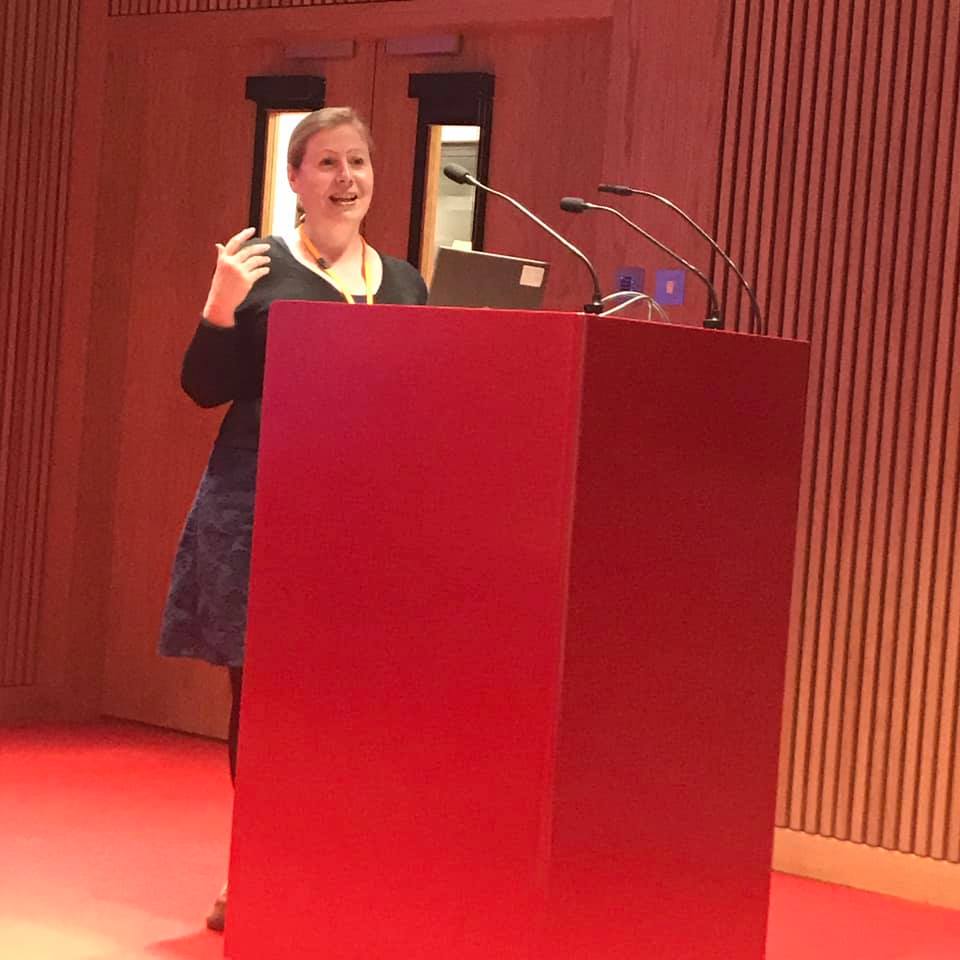As a background to a fascinating discussion on the Internationalising of RDA, Ahava shared that she fell in love with RDA as a student, but Hebrew language materials were not covered. Over the course of her PhD, she talked to RDA decision-makers and realised that until she started asking them about it, Hebrew hadn’t been on their radar.
Rather than seeing this lack of awareness as off-putting, Ahava realised that there was an opportunity – within the Israeli and Hebrew cataloguing communities and within the RDA cataloguing community. She’s now the Head of Hebrew Cataloguing at the National Library of Israel and the Chair of Eurig (the European RDA Interest Group), and its back-up delegate to the RSC (RDA Steering Committee).
The RSC has a page on its website dedicated to its Internationalization Principles, which opens with the paragraph:
The RDA Board’s vision for RDA is a global standard enabling discovery of content. Despite ongoing revisions to remove the Anglo-American focus present in the original RDA Toolkit, the Board acknowledges that this perspective remains in some elements and instructions. The Board is committed to improving the international focus of RDA.
It struck me listening to the rest of Ahava’s seminar just how much we owe her for her dedication to engaging with the wider RDA community, not just with regard to the languages in which she catalogues herself (Hebrew, Arabic, Cyrillic (Russian, Ukranian), and English), but in working to open out discussion beyond the groups who have traditionally engaged with RDA (and before it the Anglo-American Cataloguing Rules).
One of the key surprises to some attendees at our seminar was that RDA triples (based in turn on RDF triples) do not equate to the structure of some languages, including Hebrew. So whenever we see a presentation that discusses subject, predicate and object (the three forms of triples) as intuitive, we should be aware that they are only intuitive for some, not all, language groups.
Other interesting examples included the measuring of timespans (midnight-midnight vs. nightfall to nightfall); capitalization (not all languages have capital letters), tribal names, and the numbering of leaves and pages. Ahava gave the example of the form Talmud leaf 1A, leaf 1B and so on, which is exactly the sequence any scholar in the field would expect it to be given, where RDA would give preference to a number of pages.
There are also issues around language “ownership.” Who “owns” French? France or Quebec?
If you are interested in these issues, you might like to read the report Ahava prepared for the RSC on Western and Christian Bias in RDA. If you are active in cataloguing and have encountered examples of bias, you might contribute to this ongoing survey Ahava is running.
As Violet Fox said to Ahava on Twitter after her seminar, “Thank you for sharing your efforts so far. I’m glad to have you leading this important work!”









